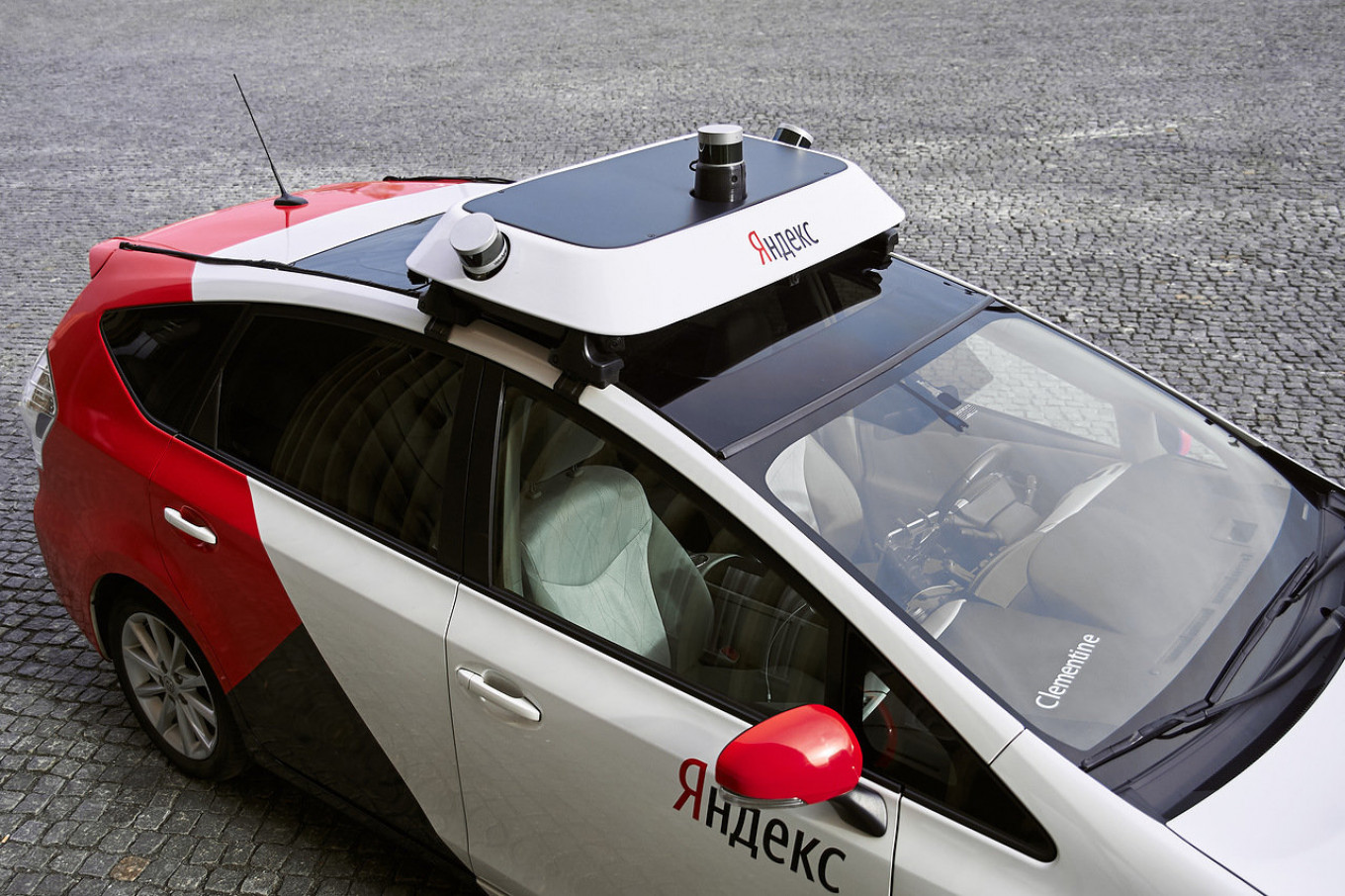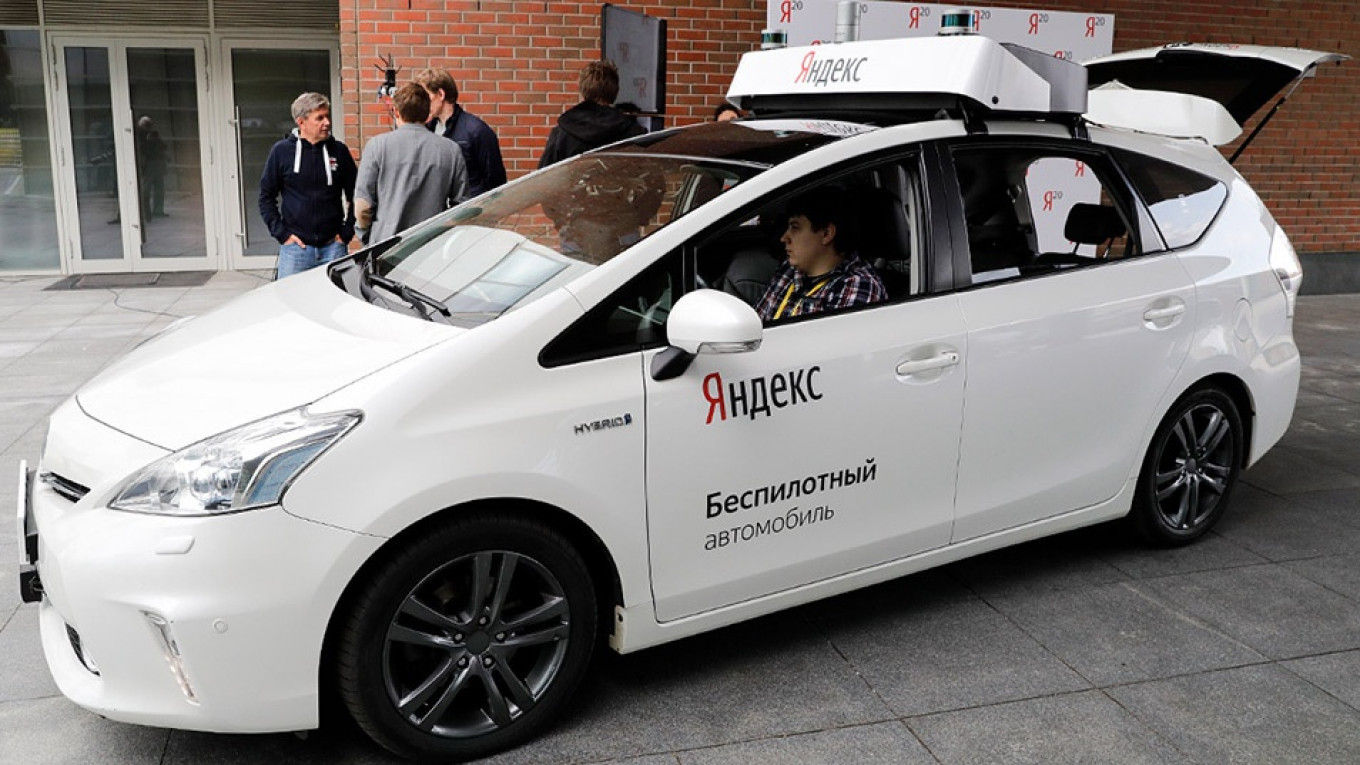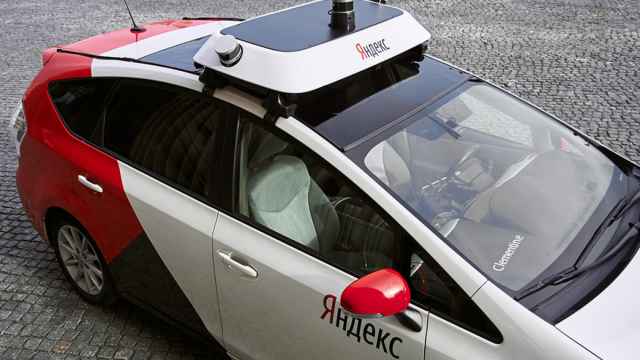Yandex, Russia’s largest internet firm, said its self-driving cars have passed one million miles in fully autonomous driving since it started testing the technology in December 2017, joining an elite group in the emerging robotaxi industry.
The milestone matters for Yandex’s quest to compete with the likes of Google parent company Alphabet’s Waymo for a share of the market, which UBS says could exceed $2 trillion by 2030.
Getting to one million miles indicates the company is on its way to verifying its technology — showing that it’s reliable and safe. That’s key for getting regulators to accept cars in the streets with no person at the wheel.
Most of the company’s mileage was driven on public roads in Moscow, including in the snow and rain, and in Tel Aviv, known for "haphazardly parked cars in the city’s intense heat," Yandex said in a statement Thursday.
The company already runs Russia's largest ride-hailing service, Yandex Taxi, which posted 16.4 billion rubles ($260 million) of revenue in the first half of 2019 and turned profitable in the second quarter. The other large players in the self-driving industry include Waymo, GM Cruise, Baidu and Uber.
Yandex plans to expand its self-driving fleet to 1,000 cars within two years from about 50 now, which will enable it to run 1 million miles a week, Dmitry Polishchuk, head of Yandex’s autonomous business, said in an interview.

Polishchuk, 34, moved into the division’s top job three years ago after heading Yandex’s browser division and overseeing Navigator, its geolocation app. He is a graduate of the Russian Federal Security Service’s institute of cryptography, communications and computer science.
Yandex is working with regulators to allow a pilot project in two cities — Innopolis and Skolkovo — to test rides with no engineer on board, he said. Now, when people there order a self-driving ride from the Yandex Taxi app, an engineer sits in the front passenger seat with a red emergency button.
Companies in the industry can struggle to meet their deadlines for getting their cars on the road. Robocar software can be a greater technological challenge than many had anticipated, while developers and governments are still grappling with the human cost of development after an Uber test vehicle killed a pedestrian crossing the road in Arizona in March 2018.
The economics of a self-driving taxi fleet that operates as much as 24 hours a day may now compete with the costs of a human-operated taxi service, Arkady Volozh, chief executive and founder of Yandex, said at a conference in Yerevan, Armenia earlier this month.
The annual cost of the autonomous tech that gets added on to a vehicle has dropped from about $50,000 in 2018 to $30,000 in 2019 — the same as the average yearly wage bill for a team drivers operating a single taxi for about 18 hours a day. The company believes the cost of the self-driving apparatus will fall further.
Since customers are unlikely to pay significantly higher prices for self-driving cars, the most logical model for companies in the industry is to operate fleets of vehicles to carry passengers, Polishchuck said.
"Being a part of Yandex Taxi, we can become one,'' he said.
Yandex took a further step toward commercializing its tech in March, when it signed a deal with Hyundai to develop self-driving vehicles jointly with its engineers. The first autonomous Hyundai Sonata was released in July and Yandex plans to move its self-driving fleet to Hyundai-Kia cars, Polishchuk said. This enables discounts for the vehicles, as well as the prospect that Hyundai rolls out the Russian tech to other markets.
A Message from The Moscow Times:
Dear readers,
We are facing unprecedented challenges. Russia's Prosecutor General's Office has designated The Moscow Times as an "undesirable" organization, criminalizing our work and putting our staff at risk of prosecution. This follows our earlier unjust labeling as a "foreign agent."
These actions are direct attempts to silence independent journalism in Russia. The authorities claim our work "discredits the decisions of the Russian leadership." We see things differently: we strive to provide accurate, unbiased reporting on Russia.
We, the journalists of The Moscow Times, refuse to be silenced. But to continue our work, we need your help.
Your support, no matter how small, makes a world of difference. If you can, please support us monthly starting from just $2. It's quick to set up, and every contribution makes a significant impact.
By supporting The Moscow Times, you're defending open, independent journalism in the face of repression. Thank you for standing with us.
Remind me later.






